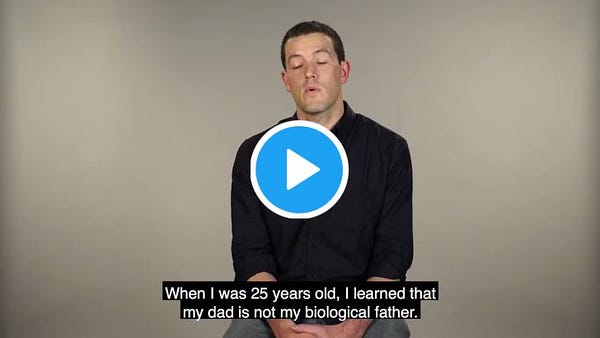An interview with Adam Frankel
On his new book, "The Survivors: A Story of War, Inheritance, and Healing"
Dear Friends,
We are so excited to host an exclusive conversation with Adam Frankel, Michael’s former colleague and speechwriter for President Obama’s 2008 campaign and in his first term. It was Adam who often had the pen (keyboard?) for President Obama’s remarks regarding faith, including several National Prayer Breakfast speeches.
Adam is the author of the new book, “The Survivors: A Story of War, Inheritance, and Healing,” which was released today. We strongly encourage you to check it out.


Enjoy,
Michael and Melissa
1. My first question, similar to what I asked our friend Sarah Hurwitz, is why, out of all the books you could have written, is this the book you chose to write first after your years in The White House?
The truth is, I needed to write this book. Wrestling with my revelation that my Dad isn't my biological father, grappling with all the family secrets, was so difficult, so painful, that writing about it was the only way to process it and move through it. There's fascinating research on what's called "expressive writing," pioneered by James Pennebaker at UT-Austin, about the physical benefits of writing about thoughts that are weighing on us. I found that to be the case with writing this book.
2. President Obama believes deeply in the power of story, and that was a defining characteristic of the speechwriting during his campaigns and time as president. Is this book a continuation of that? Do you believe the story you’re telling here has broader public significance, and if so, what direction are you pointing toward here?
The larger story I try to tell in the book is about intergenerational trauma. In my case, it's the trauma my grandparents experienced in the Holocaust, and the ways that trauma has reverberated through the generations. But the truth is, all of us have experienced trauma in our own lives or our families' lives--whether that trauma comes from war or violence, mental health issues, racism, addiction, abuse or some other scourge. And when we can understand the way trauma affects us and our families, I hope it helps us process it in our own lives in a way that eases the pain it can inflict.
3. You often had the pen, with the president, for some of my favorite speeches to religious audiences or for religious occasions that he ever gave. How did that experience inform your desire to write a book with such significant themes around religious identity?
It was such an honor to work with President Obama on faith speeches. I'm Jewish but I've always been so deeply moved and fascinated by the language and stories of the New Testament. The language of faith is, inherently, elemental--it calls on us to focus on the things that are most important in life. And in a sense, that's what I've tried to focus on in my book--on what it means to honor our loved ones, what it means to be a father, what it means to be a man, what it means to be a member of a family.
4. What has it been like to write about yourself, and to prepare to talk about yourself quite a bit on this book tour, when so much of your career has been helping to tell other people’s stories and convey their ideas?
Very scary! Much of the book is about family secrets and by definition, I didn't share them with many people for most of my life. I withhold the truth of my identity from my own Dad for almost a decade. So, sharing all of this publicly is a bit unsettling, but it's also liberating to be rid of these secrets and I hope it brings some healing to others who may be grappling with their own family disclosures or secrets or trauma.
5. The ideas of family and belonging have been really important to me in my life and writing. To think about such things seems to be both natural and immense burden. We often think about religion in similar ways: both inescapable and confining or life-directing in ways that can make us uncomfortable. Does any of that resonate with you? As you were writing this history did you wish you could discard it, or did you find yourself drawn in more and more. Perhaps a bit of both?
A bit of both. I've always revered my grandparents for what they experienced during the Holocaust. They nearly died for their religion. And that means that all of us who are here because they survived have a responsibility to carry on that legacy. So, while I am not a particularly observant Jew, my Jewish heritage is very important to me, and I also feel a deep conviction about making sure that no one has to experience prejudice or bigotry on account of their faith or anything else.
6. Other than writing what I predict will be an incredibly successful book, endorsed by the likes of Doris Kearns Goodwin, Michael Beschloss and Samantha Power, what are you working on and how can people stay up to date on your work?
You can follow me on twitter at @apfrankel and stop by a book events listed at adampfrankel.com!



